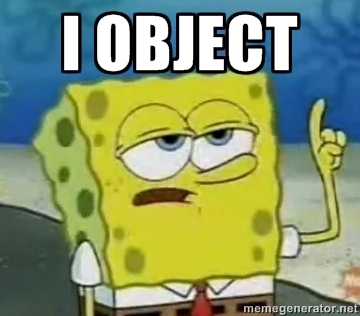|
Listen to this post:
|
 Thanks to Dr. Anderson for his carefully-reasoned reply to my Challenge. I have always been a fan of both him and his work, and RTS students are lucky to have such a capable and humble professor teaching them apologetics, philosophy, and analytic theology.
Thanks to Dr. Anderson for his carefully-reasoned reply to my Challenge. I have always been a fan of both him and his work, and RTS students are lucky to have such a capable and humble professor teaching them apologetics, philosophy, and analytic theology.
I was at first puzzled by his use of an allegedly parallel argument – usually, an objector wields one of those in order to show that the original argument is invalid. But Dr. Anderson grants that the Challenge is valid. I’m glad about that, and also that he grants that 1-3 is sound. He should also agree, then, that one should not say “Jesus is God” unless one immediately clarifies that this is a predication (ascribing some sort of divinity to Jesus) and not an identification (asserting Jesus and God to be numerically one and the same).
I’d be happy if I could get the apologists I originally had in mind to admit that much!
But Dr. Anderson wants to claim that 4-9 is unsound (though valid). His reply comes down to this: we should deny 4, because thinking about material objects shows that 4 is false.
That’s too brief, in my view. Yes, a few brilliant philosophers, like Dr. Michael C. Rea of Notre Dame, deny 4, on precisely these grounds. But as I point out here (pp. 13-14), equally brilliant metaphysicians think that this approach to material objects contradicts certain self-evident truths. Unless a Christian is in a position like Dr. Rea, having a worked out theory about material constitution, I don’t think she’s in a position to deny 4, as 4 strongly seems true even to her, and does not also seem false. The point seems to hold no matter what kind-term we substitute for “god” there – but also as written.
Logically, Dr. Anderson’s move is apt. Denying 4 gets one out of having to a gree with 9 (Update: see below – I don’t think he’s quite given us a reason for denying 4, as opposed to similar claims about material objects.) And epistemically speaking, I also think that he’s correctly put his finger on the most disputable premise. But it’s not very disputable!
gree with 9 (Update: see below – I don’t think he’s quite given us a reason for denying 4, as opposed to similar claims about material objects.) And epistemically speaking, I also think that he’s correctly put his finger on the most disputable premise. But it’s not very disputable!
Here’s a different way to put it: in my argument, no Christian can get away with denying 1, because of the Bible and Christian theology.
But in his parallel argument, 1 is plenty deniable, because it presupposes the existence of by Lump and Athena. For purely philosophical reasons, I’ve never seen fit to allow things like lumps of clay into my metaphysics; I just deny that there are such things. Anything you want to say about a lump of clay is really made true, in my view, by particles arranged in a certain way. I probably want to deny the existence of Athena too, because of thoughts sparked by what metaphysicians call “the special composition question.” Many philosophers will follow me in denying the reality of Lump, fewer in denying the reality also of Athena. But probably a majority (or at least a very substantial minority) deny the reality of at least one of them. Thus, they would disagree with Dr. Anderson’s premise 1.
Why? Here’s one reason. It seems wrong to say that there are two material objects – a lump and a statue – at that same place and time, where you see that little laughing buddha. How much bronze is in each? Let’s say, a pound. Well, if there are two things there, each weighing a pound, then when I put it on the scale, it should read: “2 pounds.” But it says 1. What gives?
These theorists want to say that in such cases the statue “borrows” its weight from the mass or lump of bronze, which “constitutes” the statue. Such claims are much disputed.
I suspect that a longer answer from Dr. Anderson, if he gives one, will say something about mysteries (i.e. reasonably believed merely apparent contradictions). He says in the post, and makes abundantly clear in his first book, that analogies or comparisons with material objects really don’t give any positive help in understanding the Trinity coherently (Paradoxes in Christian Theology, pp. 47-54) While he now endorses a Rea-type treatment of material objects, and this if correct does imply that 4 is false, in conclusion, I would like to know if he grants this much:
Either Jesus is not a god, or some material objects constitute other material objects.
Dr. Anderson grants 1-9 to be valid, and grants the truth of each premise but 4, for the reason just stated. What I’ve just written, though, is a strange thing to think. Is the believer at the mercy of metaphysicians? If one comes along and convinces her that the second disjunct is false, must she then affirm that Jesus is not a god? I’ll wager he would say no – but then, we’ll have to compare whatever grounds he offers for that longer reply with our grounds for agreeing with 4, 6, and 8 in my argument. In this case, I think it would really be his longer reply that bears the weight.
In any case, I much appreciate his standing up and delivering a clear at least initial reply.
In any case: Do you agree with him, that 4 is false?
Update 2/6: in what I wrote above, I was failing to clearly distinguish 4, which is about gods, from claims about material objects and the general claim: for all x and y, x and y are the same F only if x = y. If those philosophers are right about material objects, this would show the general claim to be false. But then, what of 4? One may still think that is true! So, I think to really make even this brief case, Dr. Anderson needs to connect the falsity of “x and y are the same material object only if x = y” with my premise 4. I’m not sure how one does that, unless one claims, like Dr. Rea, that there is something analogous to matter in the Trinity, or that the “divine nature” plays a role in the Father and Son similar to the role matter plays in constituting some material object. But it seems to me that Dr. Anderson does not make any such claims, and so I don’t think he’s quite given us a reason to deny 4. Above I grant too much, when I say he’s done that. One may well accept 4 even if one doesn’t know what to make of the metaphysics of material objects. So again: too brief.

Pingback: Further Thoughts on Tuggy’s Challenge | Analogical Thoughts
I have some problems with 4 too, as I already posted, as it seems to assume, rather than argue against the Triune-God position (which I don’t hold). I don’t have enough experience, however, to know if this is a valid objection. I just sense that the argument might lose traction at this point among my Trinitarian friends (including the historic John, from whom I also differ ;)). It sounds a bit to me like saying “SINCE God is unipersonal, …” Am I wrong?
Pingback: A Brief Response to Tuggy’s Challenge | Analogical Thoughts
Comments are closed.